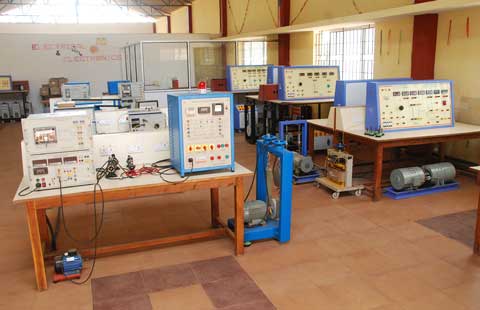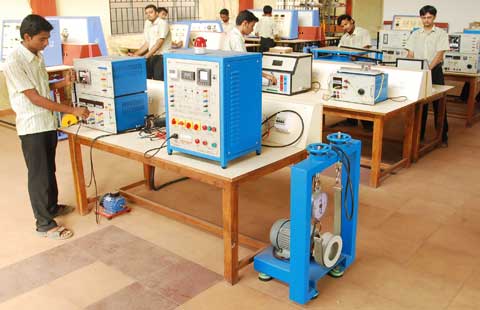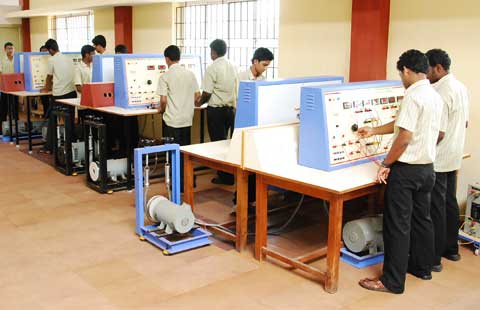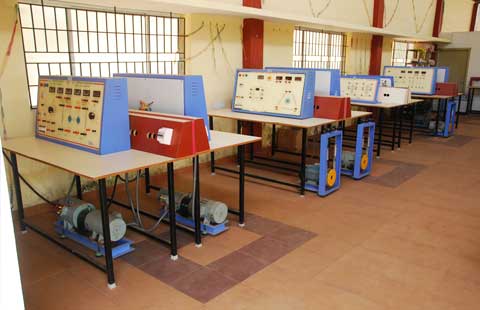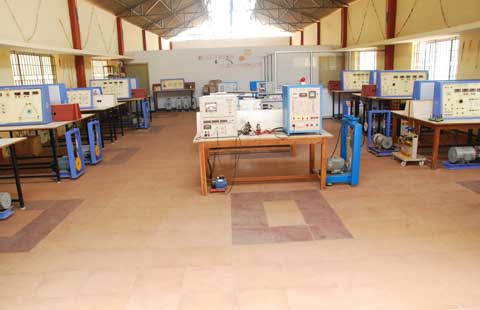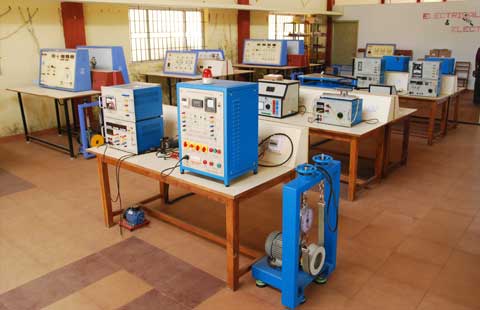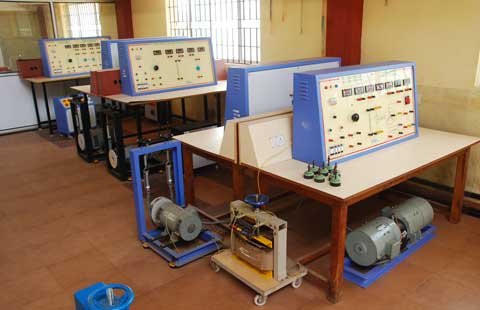Departments
 Download application form
Download application form
Contact us
 Click here
Click here About B.E. Electrical & Electronics Engineering
The Department of Electrical Engineering at Karavali Institute of Technology has well-prepared laboratories like Electrical, Electrical Instrumentation, Network Analysis, Control System, machine lab, etc. World class software like MATLAB, Simulink, PSCAD, PSIM. Labview are available in the department to work on top-of-the line projects in various areas of Electrical Engineering.
The Department also has excellent testing facilities in the area of High Voltage Engineering and testing of rotating machines. It has synergetic group of knowledge and vigorous teaching and supporting staff. Various activities are undertaken by the department to expand proficient approach and personality of the students.
Laboratories
- Analog Electronics Lab
- Logic Design Lab
- Microcontrollers Lab
- Power Electronics Lab
- Measurements & Circuit Simulation Lab
- Transformers & Induction Machines Lab
- DC Machines & Synchronous M/c Lab
- Control Systems Lab
- Relay & High Voltage Lab
- Power System Simulation Lab
Field of Study
Electrical and electronics engineers design, develop, test, and supervise the manufacture of electrical and electronic equipment. Some of this equipment includes broadcast and communications systems; electric motors, machinery controls, lighting, and wiring in buildings, automobiles, aircraft, and radar and navigation systems; and power generating, controlling, and transmission devices used by electric utilities. Many Electrical and Electronics engineers also work in areas closely related to computers.
What is it all about
The diversity of the field of electrical and electronics engineering is represented in the following areas of involvement.




